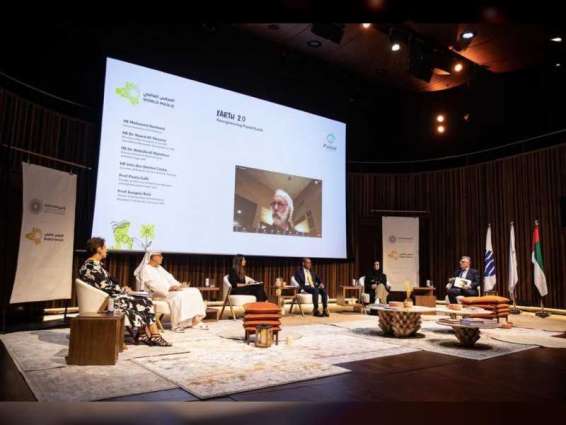DUBAI, (Pakistan Point News - 10th Oct, 2021) Dr. Abdulla Al Mandous, Director-General of National Centre of Meteorology (NCM) and President of the Regional Association II (Asia) of the World Meteorological Organisation (WMO), has participated in a panel session titled ‘Reengineering Planet Earth’ hosted by the World Majlis at Expo 2020 Dubai as part of the Climate and Biodiversity Week.
In his address, he highlighted the important role of cloud seeding as a catalyst for reengineering the planet earth through mitigating drought, enhancing water resources and ensuring its sustainability. For nearly two decades, the UAE, as part of its leadership’s progressive vision, has allocated huge investments towards implementing cloud seeding operations to effectively tackle water scarcity.
Al Mandous said, "Weather modification has proven to be a successful approach in reengineering environment, as cloud seeding can significantly limit global warming and its detrimental effects such as droughts and high-water evaporation rates. Cloud seeding is effective in improving the micro-physical processes within the cloud, helping us harvest more water from the cloud and enhance precipitation by a global average of 18 percent."
He added that the potential future effects of climate change include prolonged drought in some regions and a surge in tropical storms in others. This mandates collective action to prevent the long-term consequences of climate change on future generations.
As part of its response to this challenge, the UAE has adopted cloud seeding technologies to offset the lack of natural water resources and increase the amount of rainfall. This has allowed the country to adapt to the challenges of drought in the Arabian Peninsula, and other arid and semi-arid areas across the globe, he noted.
The session also drew the participation of Mohamed Nasheed, former President of the Maldives; Dr. Nawal Al-Hosany, the UAE Permanent Representative to the International Renewable Energy Agency (IRENA); Ines dos Santos Costa, Secretary of State for the Environment of Portugal; Joaquin Ruiz, Chair and Director, Department of Biosphere 2, University of Arizona, USA; and Professor Paolo Galli, Full Professor of Ecology, Department of Environmental Sciences, University of Milano-Bicocca.
The UAE started its cloud seeding operations in 2002 in response to its shortage of water resources. The country followed the conventional approach of igniting hygroscopic flares composed of natural salts (primarily potassium chloride) at the base of convective clouds near the updraft core. In the early years, the operations targeted frequent summertime convection along the northeastern Hajar mountains. The country’s cloud seeding infrastructure subsequently expanded over the years until suitable cloud candidates were targeted year-round over the entire UAE from 2010 onwards.
The National Centre of Meteorology is the entity responsible for implementing cloud seeding operations across the UAE.




